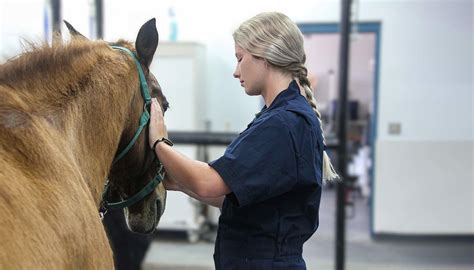How Veterinarians Are Crucial to the Animal Industry
The animal industry, encompassing everything from pets to livestock and wildlife, relies heavily on the expertise and dedication of veterinarians. Their role extends far beyond treating sick animals; they are vital for maintaining animal health, welfare, and the overall productivity and sustainability of various sectors. Let's explore the critical importance of veterinarians within this diverse industry.
Maintaining Animal Health and Welfare
Preventing Disease and Illness: This is arguably the most significant contribution of veterinarians. Through preventative medicine like vaccinations, parasite control, and regular check-ups, they significantly reduce the incidence of disease and illness in animals. This is crucial for both individual animal well-being and the economic health of the animal industry. A healthy herd or flock means higher productivity and lower losses for farmers and ranchers.
Diagnosing and Treating Illnesses: When illness does strike, veterinarians provide accurate diagnosis and effective treatment plans. Their expertise in various animal species, coupled with advanced diagnostic tools, allows them to address a wide range of health issues, from simple infections to complex surgical procedures. Early intervention often means the difference between life and death, and the prevention of wider outbreaks.
Promoting Animal Welfare: Veterinarians play a significant role in promoting animal welfare standards. They advocate for ethical treatment, humane handling practices, and appropriate housing conditions across the animal industry. Their knowledge and expertise inform legislation and policy regarding animal welfare, ensuring ethical considerations are integrated into all aspects of animal management.
Supporting the Economic Viability of the Animal Industry
Improving Livestock Productivity: In agriculture, veterinarians work closely with farmers and ranchers to optimize animal health and productivity. They develop strategies to improve breeding programs, enhance nutritional management, and implement biosecurity measures to prevent disease outbreaks that can devastate livestock populations. This directly impacts the profitability and sustainability of agricultural operations.
Ensuring Food Safety: Veterinarians are essential in ensuring the safety of animal products destined for human consumption. They monitor animal health, identify and control zoonotic diseases (diseases transmissible from animals to humans), and implement protocols to prevent contamination of meat, milk, and other animal products. This is critical for protecting public health and maintaining consumer confidence.
Contributing to Wildlife Conservation: Veterinarians are also crucial in wildlife conservation efforts. They provide medical care for injured or sick animals, conduct research on wildlife diseases, and work to mitigate human-wildlife conflicts. Their expertise is instrumental in preserving biodiversity and protecting endangered species.
The Future of Veterinary Medicine in the Animal Industry
The animal industry is constantly evolving, and the role of veterinarians continues to expand. Advances in technology, such as advanced imaging techniques and genetic testing, are enhancing diagnostic capabilities and treatment options. Furthermore, there's a growing emphasis on preventative medicine, animal welfare, and sustainability, requiring veterinarians to adapt and develop new skills and expertise. The demand for highly qualified and compassionate veterinarians is only expected to grow in the coming years.
In conclusion, veterinarians are indispensable to the animal industry. Their expertise is essential for maintaining animal health and welfare, supporting the economic viability of various sectors, and contributing to broader societal goals like food safety and wildlife conservation. Their multifaceted role ensures a thriving and sustainable future for both animals and the people who depend on them.
